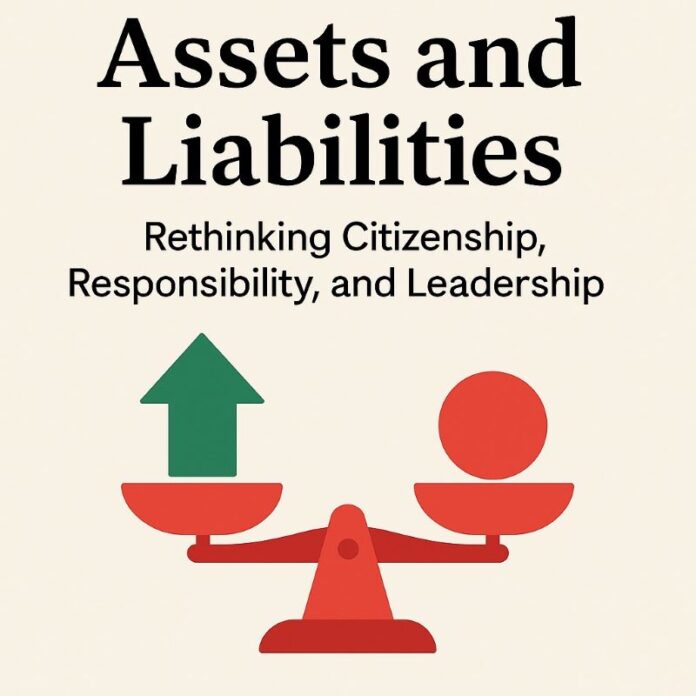As we journey through life, many of us are afforded moments of influence as leaders, mentors, teachers, or public servants. These moments come with the implicit responsibility to not only shape others but to critically reflect on our purpose and that of our fellow citizens. What role do we each play in society, and are we contributing to its growth or stagnation?
The Two Paths: Asset or Liability
In any functioning society, individuals fall into two broad categories: assets or liabilities. This may sound harsh, but it reflects a more profound truth: in a system where collective wellbeing depends on contribution, those who are empowered to produce, create, guide, and protect are the lifeblood of the nation. Those who are unable or, in some cases, unwilling to contribute often become dependent on those who do.
This is not always a matter of choice. Birthplace, poverty, fractured homes, inequality, and systemic marginalization all contribute to shaping someone’s ability to rise. However, the costs of unresolved inequality and unchecked underdevelopment become heavy burdens for the state and the productive citizenry. When the balance tilts too far, when liabilities outweigh assets, the foundation of any nation begins to strain.
Leadership and the Power of Empowerment
It is the role of ethical leadership to change that balance. Good governance is not about control, it’s about cultivation. Governments must create structures where citizens can evolve from liabilities into assets. This is not only a compassionate policy; it’s economically sound.
Empowerment through quality education, fair economic opportunity, health equity, and strong institutions makes it possible for individuals to thrive. In doing so, they cease to burden the system and instead become investors in its progress.
Unfortunately, in countries like Guyana, the opportunity gaps are still too wide. Many citizens are left behind due to corruption, racial and political marginalization, and a persistent divide between urban and rural development. Those who manage to “make it” through migration, private education, or political access often lose sight of the systemic barriers preventing others from entering the race.
The Cost of Neglect
When those who are left out have no path forward, frustration festers. This has real consequences. Crime, violence, and civil unrest are not random; they are the voices of desperation. No matter how safe the gated communities or how high the walls of privilege, the ripple effects of mass economic and social exclusion are unavoidable.
A society cannot sustain stability on the backs of a few. If the few are constantly called upon to subsidize the many financially, emotionally, or physically, resentment grows, systems buckle, and social cohesion collapses.
A National Call to Action
Guyana is at a pivotal crossroads. With the recent influx of oil wealth, there is unprecedented potential to reshape the nation’s trajectory. But the question remains: who will benefit?
Now is the time for all sectors, government, business, civil society, and ordinary citizens to embrace a mindset of inclusive development. That means prioritizing human capital: uplifting those at the margins, investing in the vulnerable, and rooting out policies that deepen exclusion.
Our future will be determined not by how well a few succeed, but by how many are empowered to contribute. Every citizen added to the ranks of society’s assets reduces the weight of collective liability. And in that lies true national strength.
Conclusion
We each have a choice in our daily interactions, policy positions, and votes to support a society where more people are given the tools to thrive. It is not charity; it is survival. A society with too many liabilities cannot endure. But one where assets abound? That is a nation built to last.






